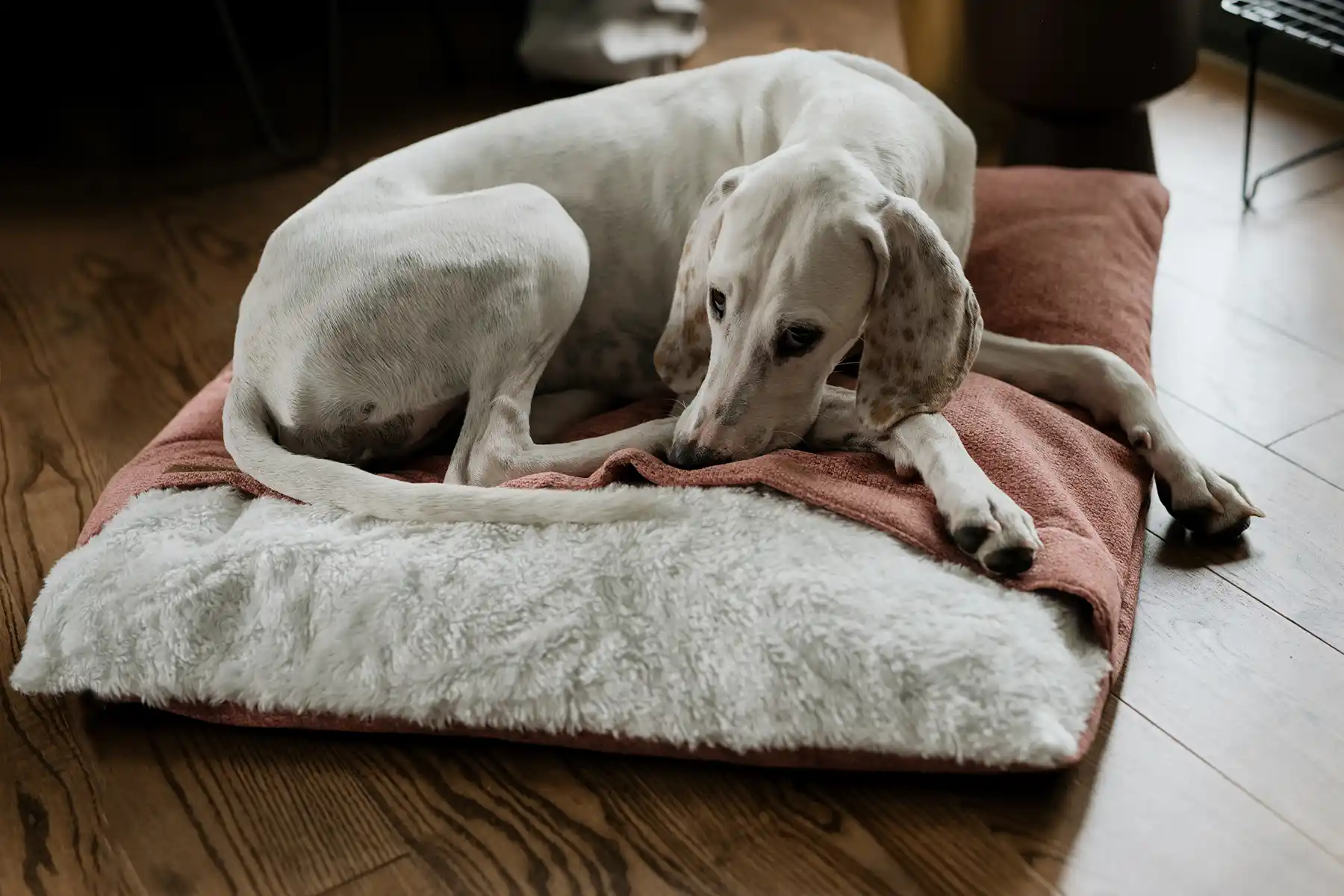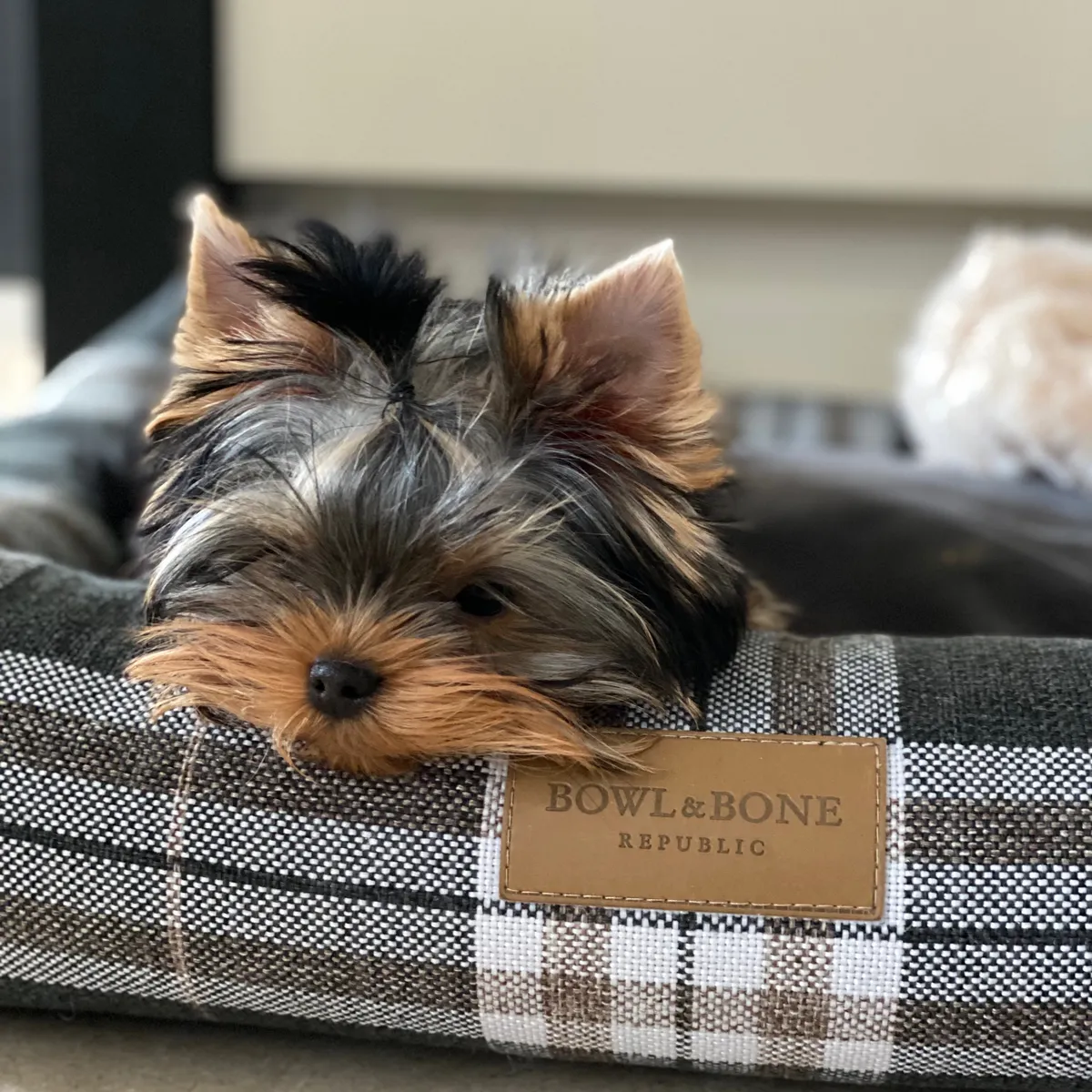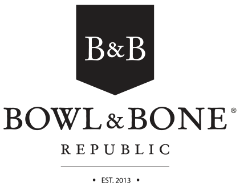
Have you ever noticed that your four-legged friend has hiccups? If so, you are undoubtedly curious about what causes it and whether it is a severe condition in the case of your dog. Many different reasons can cause your pet to hiccup. Fortunately, most of them are easily preventable.
Dog hiccups
Hiccups are unpleasant feelings that usually hits us when we least expect them. I don’t think I need to explain to anyone what hiccups are. However, have you ever wondered if a dog can hiccup?
Of course, the answer to this question is yes. You may have even witnessed this kind of unconditional reflex in your four-legged friend.
I will show you the causes of your dog’s hiccups. It’s how it proceeds and how you can help your pet get rid of it. I think this is not a pleasant feeling for anyone, and the dog will be very grateful if you help him free himself from it.

Common causes of hiccups in dogs
There can be several reasons why a dog hiccups. You certainly know some of them well. However, I think some may surprise you. So, your four-legged friend may have hiccups for reasons such as:
– cooling down of the body as a result of staying at a temperature that was too low for the dog,
– too greedy and fast food, which results in the dog swallowing far too large bites,
– the food given to the dog was too warm or too cold for him concerning his personal preferences,
– After eating a large meal, the dog had no adequate access to water to hydrate. That is significantly often noticeable when the dog’s dinner consists mainly of dry food
– too excited dog or hyperactivity can also be a direct cause of hiccups,
– high fear and anxiety can also cause hiccups
– a dog may begin to hiccup when he chokes on something stuck in his throat, preventing him from swallowing. It can be a bite of food or a piece of a toy.
So as you can see, there are many causes of hiccups in a dog. Many of them are directly related to food. So it will be easy to conclude if your pet regularly has hiccups after eating.
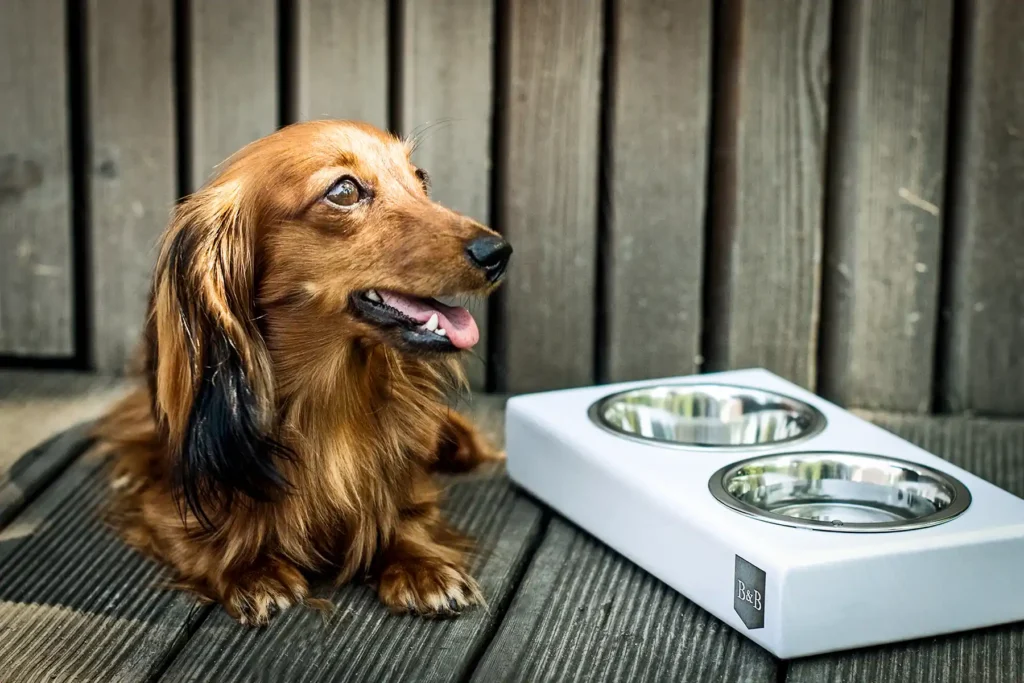
What to do to prevent your dog from hiccups
Unfortunately, at the very beginning, I must make you aware that you cannot fully control the occurrence of hiccups in your quadruped. While we have some influence on the fact that the dog does not make hiccups after eating, unfortunately, in other cases, it is challenging.
Keep your pet warm
If your dog often has recurring hiccups after walks on autumn or winter days, it may be a sign that it needs clothes protection.
Some dogs need a sweater or jacket as additional insulation. I recommend a warm ASPEN dog sweater made of pleasant-to-the-touch French wool in such situations.
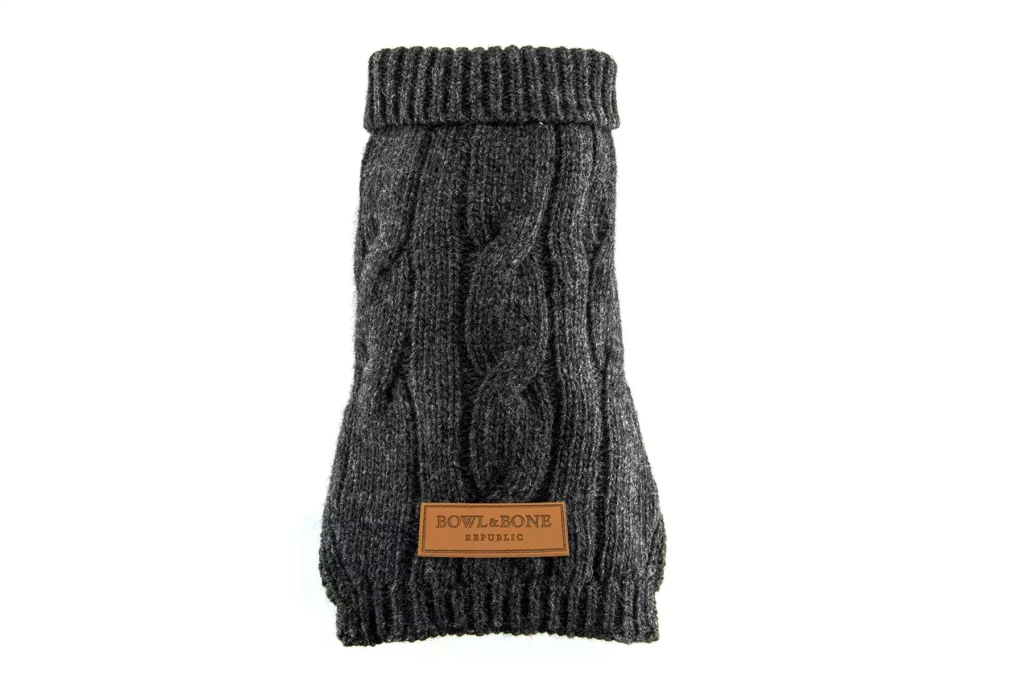
Dog sweater |ASPEN graphite
An atmosphere during meals
As I mentioned before, a dog often hiccups during or just after eating. As a carer, you can minimize the risk of situations with hiccups in your pet.
Ensure your dog always has fresh, clean water next to the food. It is essential.
An excellent way to remember to always give your fresh dog water at the time of a meal is to choose a bowl that has a frame for two inserts—one for food and one for water. My dog has just a bowl from the DUO line from Bowl&Bone Republic.
However, if your four-legged friend eats very quickly, which causes him to hiccup, consider buying a bowl that slows down his eating.
How it’s working? Such a bowl has special protrusions. Thanks to them, the dog is supposed to fish out bites of food from between these protrusions while eating. As a result, the canine eats much slower than in the case of a standard bowl.
Always make sure your dog’s food is at the right temperature. If you’re giving him canned dog food, take it out of the fridge ahead of time, so it’s at room temperature when you serve it.
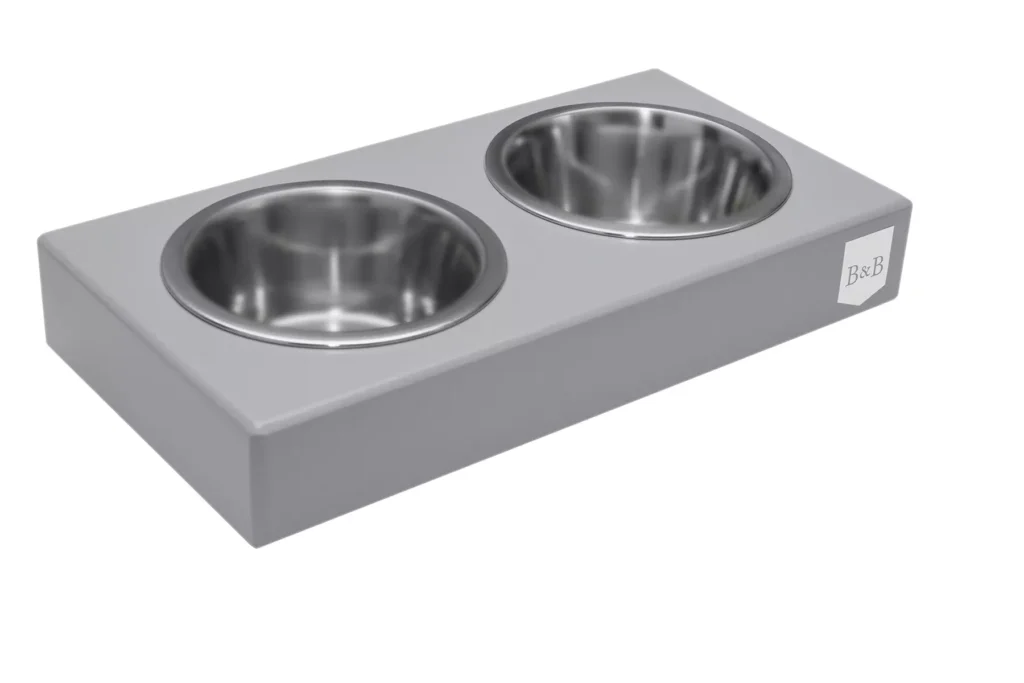
Dog bowl |DUO grey
In case you are cooking your food, it mustn’t be hot. Stir the food in the bowl several times to ensure that the top layer and the whole meal have cooled down.
Peace and stability
If your dog always has hiccups after fascinating situations, try to create a more calm and stable atmosphere.
He is well aware that it can be difficult. Probably every dog guardian loves to enjoy, rejoice and go crazy while playing together, as well as other cheerful, everyday moments with the do.
However, if your dog does not tolerate situations in which he experiences strong and sudden emotions, you need to approach your quadruped slightly more relaxedly. If you are very excited, try not to show it in the company of your pet.
Some dogs are susceptible. Strong emotions can harm their health. If your pet belongs to such a group, you should take special care of it. If you want to learn more about sensitive dogs, I refer you to the entry HERE.
What to do if your dog hiccups
First, if your dog has hiccups, in no case do not use methods that we employ in such a situation in everyday life. Scaring the dog will not make it get rid of the hiccups. Moreover, it can make him feel very uneasy and uncomfortable.
In no case should you try to give your dog sugar in any form or make him hold his breath.
Moreover, it is worth mentioning that hiccups are very common in puppies. It occurs in them much more often than in adult dogs.

Remedies for hiccups in dogs
Usually, hiccups in our dogs go away on their own within a few minutes. Therefore, wait for this moment, and perhaps it will turn out that the hiccups will subside without your help and interference.
But how can you help your pet when he has hiccups? Try to give him water to drink. Drinking water can help get rid of hiccups.
You can also interest him in a toy like a teether. It was biting, causing excess saliva in the dog’s mouth. As a result, the dog must swallow it much more often than in normal circumstances. That should help the dog deal with the troublesome hiccups.
However, if the problem of dog hiccups keeps recurring, make an appointment with your veterinarian. Especially if other disturbing symptoms also accompany the canine’s hiccups.
Hiccups in a dog – a problem or not?
Dog hiccups are a similar type of problem to humans. It is quite an uncomfortable feeling. One might even say annoying. However, it is nothing serious or worrying.
Does your four-legged friend get hiccups? If so, how often and how do you deal with it?
Please share your experience with me in the comments section below.





